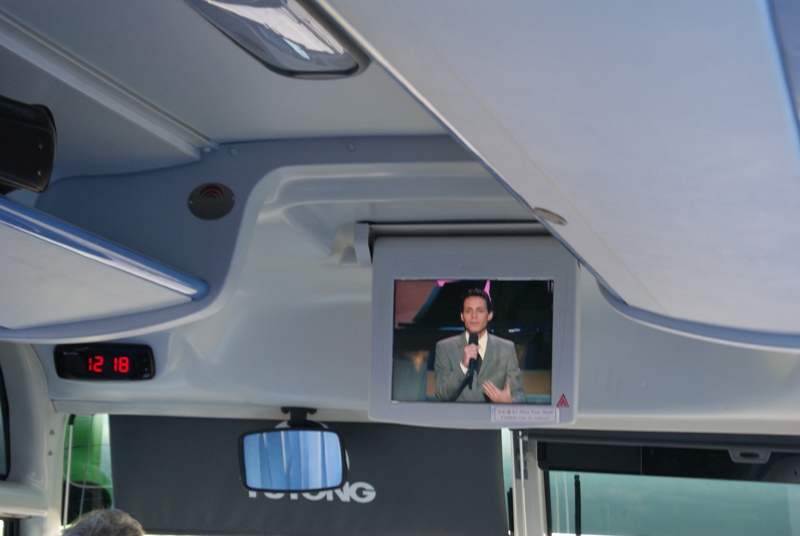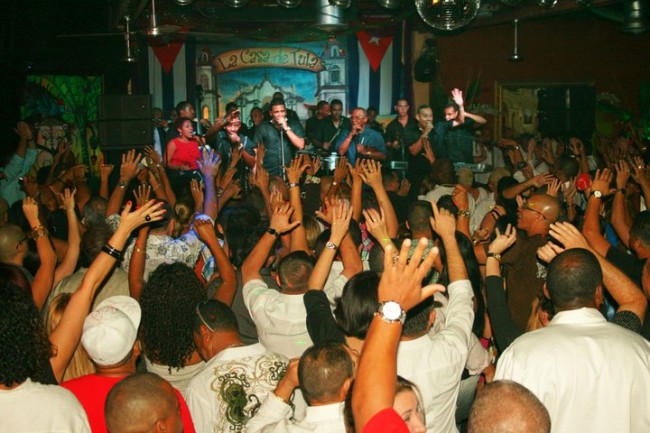Month: December 2010
Democracy and Subversion on the Bus / Luis Felipe Rojas
Once more I made the journey from Havana to Santiago de Cuba in a glistening Yutong made-in-China bus, which doesn’t belong to us Cubans, but rather to those “embattled workers” of the capitalist world who come to spend the summer in Cuba. It was the Transgaviota busline, a tourist emporium that belongs to the Revolutionary Armed Forces in my country.
Since these buses should not return empty to the east of the island, they are made to pass through the bus stations to pick up those passengers who have spent several days in line to move between provinces. This time I must shamefully admit that Raul Castro’s government has made some changes, superficial (as the politicians say), skin deep (as ancient Cubanology states), but there have been changes. Now, instead of poisoning us with the latest reggaeton or the last concert tour of Alvaro Torres through Europe (forgive me, fans of the Salvadoran), they showed us a Celia Cruz concert where she never ceases missing her homeland. Some young people behind me were surprised and they were asking why not show it. When we left the first conejito on the National Highway, the driver surprised us with a selection of the hundred best plays in the Major Leagues, and we saw Ordóñez, José Ariel Contreras, Canseco and Alex Rodríguez.
I don’t like the lovey-dovey music of Marco Antonio Solis, but when those Hispanic crowds cheer him on, I take my hat off and step aside. In a tribute that makes up the stock of any respected bus driver, Marco Antonio is greeted by former President Bush and when they shook hands, I saw the face of a Lieutenant Colonel in the People’s Revolutionary Army who was in the row next to me — he looked like he was recovering from a heart attack.
Afterward, the trip became boring. They started playing a few programs which were made in the USA, called “Decisions” and “Case Closed”. Everyone on the bus would just stare at each other in awe as those Hispanics butchered the Spanish language — and yet, they had jobs and they were apparently happy. The trip ended with a “Case Closed” episode, a sort of personal life program. In this specific episode, a Dominican man was being accused of exploiting a semi-mentally challenged girl. Astonished, he was alleging that he had not done anything out of the ordinary, stating that, “in Cuba they give you a girl for 20 bucks!” The bus driver started lowering the volume, while some on board were staring at the Eastern landscapes. The afternoon was arriving and we barely even noticed when the guy behind the wheel put on a bank-robber movie. We were hungry and sleepy, worn out by 700 kilometers of bad roads and horrible food service. But for 12 hours, we lived outside the heat of the nation and of its television, something which the housewives and workers who will now become unemployed cry out for.
This is also my country.
Translated by Raul G.
December 20, 2010
Falcor / Fernando Dámaso
 My dog Falcor, or rather my son Anibal’s dog, died in the early morning hours of the tenth or eleventh of August. On the 31st he would have been 18 years old, a really long life for a canine. His body was buried in the patio of the Ayestarán house, along with those of other beloved mascots who passed away earlier. At least he’s not alone, his soul is already in dog heaven. He accompanied me faithfully all these years, always noble, always loving, always playful. In reality, from the first meeting we recognized each other: In the house of some friends near the Tropicana, along with his siblings when he was fifteen days old, he broke away from his brothers and with faltering steps approached Anibal, then 9, and tried to climb up his legs. When the owner asked us, “Which one do you want?” the answer was obvious.
My dog Falcor, or rather my son Anibal’s dog, died in the early morning hours of the tenth or eleventh of August. On the 31st he would have been 18 years old, a really long life for a canine. His body was buried in the patio of the Ayestarán house, along with those of other beloved mascots who passed away earlier. At least he’s not alone, his soul is already in dog heaven. He accompanied me faithfully all these years, always noble, always loving, always playful. In reality, from the first meeting we recognized each other: In the house of some friends near the Tropicana, along with his siblings when he was fifteen days old, he broke away from his brothers and with faltering steps approached Anibal, then 9, and tried to climb up his legs. When the owner asked us, “Which one do you want?” the answer was obvious.
From that day we called him Falcor because he reminded us of the dog-dragon in The Neverending Story. He was a cocker mix.He shared his joys and sorrows. He liked to play: Stealing toys, chewing the innards out of stuffed animals, chewing on shoes, catching balls and marbles and bringing them to us to relentlessly continue the fame. He responded to the command, “Closer!” approaching any object. Until almost his last days he was capable, although his reactions and movements had slowed, he walked like Charlie Chaplin, and he was nearly blind. I watched him fade away, like a candle burning out, and I was sad. Still, he had time to say goodbye to Anibal in June, during his flying visit. I continued caring for him, determined not to hasten his death, waiting for it to happen naturally. Luckily that is how it turned out.
He left a great emptiness and made me think about the relativity of time. We shared those 18 years and it seems to me they went too fast. I remembered the puppy, entertaining everyone, now grown and gravely ill, fighting for life during fifteen terrible days, with antibiotics and daily serum, watching him sleep, lying down and not getting up until the moment when he surprised me one morning with a bark. By the afternoon we was up on all fours running around the house, perhaps more cheerful and playful than ever. His greetings at the door, walks together, his travels, love for children. In my years of solitude he was my only companion, day after day.
At night he lay down next to my bed, and when I felt sick, he knew it. Giving up his solitude he was able to adapt to the companionship of Putica, Rebeca’s little female dog. They would compete to run to the door first any time someone visited. Putica died and we got Lucky, the new little female we found in the street, and he adapted to her and her street-wise misbehavior. I think she was his greatest joy in his later years and gave him a new zest for life. He was rejuvenated. Together they ran to the roof, fought over toys (his favorite was the plastic hippopotamus), barked at all the neighboring dogs and at Mitsukusu, the house cat, when he climbed on the eaves. He was good dog, generous and intelligent. More than a dog he was a great friend. Today I miss him. I spent 18 years of my life with him.
October 31, 2010
Lezama’s Hundredth Birthday / Regina Coyula
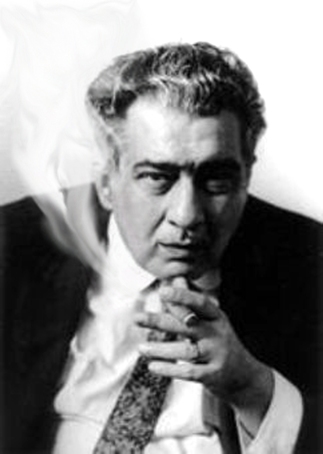 I still remember my first encounter with Lezama. In 1973, a bookshelf in my first office called my attention (another bookshelf, not one I already I mentioned) packed with a single book. The same book from the collection Cuban Letters filled three shelves. In the time I worked there, no one took a single one of those books, not even me, who knew nothing of Lezama beyond the fact that he was a writer who “wasn’t clear,” along with Virgilio Piñera, what remained of Origins, and others, almost all, today, glories of official culture. Lezama died surrounded by silence and only three or four of those who knew dared to go to his funeral. Most learned of his death the day after his burial from the little note appeared on an inside page of the newspaper.
I still remember my first encounter with Lezama. In 1973, a bookshelf in my first office called my attention (another bookshelf, not one I already I mentioned) packed with a single book. The same book from the collection Cuban Letters filled three shelves. In the time I worked there, no one took a single one of those books, not even me, who knew nothing of Lezama beyond the fact that he was a writer who “wasn’t clear,” along with Virgilio Piñera, what remained of Origins, and others, almost all, today, glories of official culture. Lezama died surrounded by silence and only three or four of those who knew dared to go to his funeral. Most learned of his death the day after his burial from the little note appeared on an inside page of the newspaper.
Today a CSI team with Grissom at the head of it, just landed in Havana to follow the Master’s prints, discovered on a glass display case in Manzana de Gómez. These are prints of the ring, middle and index fingers of the right hand. Presumably these prints will be sold for a high bid in some curiosities auction, or even an art auction, considering they belong to the immortal hand that wrote Paradise. But that’s not all.
The National Jubilee which ends today includes the reopening of the restored house-museum, the publication of his Complete Works, a photo exhibition of his portraits, with associated honors for the photographer, Chinolope; the issuing of a commemorative coin and a postage stamp, and even the recreation of the the Death of Narcissus in a ballet.
One can only imagine that in his afterlife, Lezama is laughing enigmatically, enveloped in a cloud of smoke.
December 19, 2010
Premeditated Revenge / Pablo Pacheco
 The exile to Spain of fifty Cuban former political prisoners and their families has been a well organized maneuver, calculated and premeditated by the dictatorship in Havana. It is difficult to know when they started making plans for this operation, but I imagine it had its roots in the death of political prisoner Orlando Zapata Tamayo, who staged a long hunger strike after receiving a severe beating from the soldiers at a prison in eastern Cuba.
The exile to Spain of fifty Cuban former political prisoners and their families has been a well organized maneuver, calculated and premeditated by the dictatorship in Havana. It is difficult to know when they started making plans for this operation, but I imagine it had its roots in the death of political prisoner Orlando Zapata Tamayo, who staged a long hunger strike after receiving a severe beating from the soldiers at a prison in eastern Cuba.
Added to that disgrace was the courageous stand of Ladies in White, who face the most abhorrent acts of repudiation, pressures from the political police and, to top it off, Guillermo Fariñas’ fast to demand that the regime release the sickest among the political prisoners of conscience.
Moreover, the Castro government has lost credibility with the international community. Many voices on the left have awakened from a slumber which, for years, had mesmerized them into believing that a just government existed on the island. Fortunately, many have now realized that in Cuba there is a dictatorship that curtails the fundamental rights of all Cubans, and these international voices have also helped to secure our liberation, a liberation which unfortunately turned into exile.
After the natural euphoria of breathing free after so many years of imprisonment, and the suffering on the part of our families, we began to face the second part of the punishment, which was their taking advantage of our vulnerability to send us with nothing to a country plunged into a deep economic crisis. Aside from the painful uprooting from everything that was our past, we are having to learn to live in an environment that is entirely new for all of us, face the humiliation of seeing ourselves forced to live on temporary aid–from the NGOs that support us–in order to survive, with the growing anxiety that our path is double the difficult in the midst of so much unemployment, because we have no papers to establish who we are.
Having spent more than seven years locked in our ideas, we are not trying to live without working, on the contrary, we would prefer not be given anything because we wish to live as human beings and with dignity. We are grateful to the Spanish people–I will never tire of saying it–and unfortunately we know that the Spanish do not have enough, these days, even for themselves. The government of President Zapatero should ask Havana for all the necessary papers so that we can at least fight for our reintegration into society. Or maybe Raul Castro will punish those who are now exiles in this country the same way he punishes professionals who wish to leave Cuba, refusing for five, six or seven years, to issue them travel documents? The difference is that we are already hundreds kilometers from our homeland, away from our families and friends. There is no explanation for this other than a premeditated revenge.
December 17, 2010
Note: Pablo Pacheco formerly blogged in “Voices Behind the Bars” when he was a political prisoner in Cuba. He has now been released and forcibly exiled to Spain, and has a new blog, “Cuban Voices from Exile.” We will continue to post him here, for a time, until his faithful readers have found their way to his new home.
“Driving” Lesson / Fernando Dámaso
- When driving a vehicle you should look ahead, but also use the rearview and side mirrors. This prevents accidents. It is the same when it comes to finding possible solutions to problems: we must look to the front (the new), but also take into account what is behind (the past) and what happens to our side (the experience of others).
- If you fail to do so, you can make big mistakes, believing you have discovered something new, when it has already been in use for hundreds of years. In all areas this is very important, but economically, that is what concerns me, as it constitutes one of our major bottlenecks, it is more important.
- For over fifty years (I’m looking back through the rearview mirror), our economy has been a failure. We have survived at the expense of huge infusions, first from the former Soviet Union and now Venezuela. This is a truth that only a very deluded do not accept. There are, as evidence, dozens of plans with no results and, as the culmination, the current chaotic situation.
- There are many experiences in different countries (I am looking to the sides, side mirrors). Some more liberal than others, but none, so far, is akin to the conceptions of our official economists. For one reason or another they are rejected. It is not good to copy but, They could at least be taken into account when seeking solutions.
- The road to an economic solution must pass through the elimination of political and ideological ties that imprison us (I’m looking straight ahead), go through the authorization of the small and medium privately owned cooperative in the beginning, and capital investment, Cuban first, and then abroad. It also entails the relevant legislation, to ensure security rights to these processes. There are many other issues to consider, but I think that these, for now, can serve to get us moving.
December 18 2010
CUBA: A NEW ECONOMIC MODEL? / IntraMuros
José Antonio Quintana de la Cruz
The draft guidelines of economic and social policy that will be discussed by the sixth congress of the Communist Party have been circulated for public discussion. Some believe that it contains nothing new, is not conducive to substantive change and is more of the same but tinged with tones that have been imposed by mass unemployment and the existing crisis, that they are short term rescue modifications. It seems that seen from expectations based more on wishes than sober assessments of reality, this may be true. But it never occurred to me that the Communist Party would discuss at a conference the abolition of socialism and the transition to a capitalist market economy.
An objective analysis of the document reveals that it contains substantive developments. But it is necessary to define what is novel. For this editor all that appears in the project that did not exist or was not permitted in the model that this seeks to overcome or modify; or update, as the official discourse has it, is new. According to this criterion, twenty percent of the guidelines contain new features that can induce changes in the operation or the quality of the system. The remaining eighty per cent proposes to rectify long standing shortcomings and imperfections.
It is clear that the document proposes a diversification and expansion of property relations, which in Marxist terms are relations of production. It recognizes the right of existence of small businesses in various sectors of the economy without employment limits. The figures of landlord, tenant and contractor appear. The area of action of the cooperatives of transport, trade and other sectors are extended, while freedoms and options are granted to those cooperatives which lack them, without which it would be a fiction.
The fact that individual proprietors and partners can compete, produce and sell, protected by law, that they can create companies to supply them and import what they need, together with a concession to receive bank credits, the fact that these private enterprises have business relationships with state enterprises and with the population, creates a market, embryonic and imperfect, but a market that will no longer be the suppressed variable of the economy, but a necessary and legally protected part of the economy.
This is new in Cuba. In my view, this social experiment, replaces the old debate between Von Mises and Oscar Lange about the possibility of a real and efficient economic calculation in a socialist economy. As is known, Lange believed that a regulated market subject to planning would make economic calculation possible under socialism. Von Mises asserted that this was impossible because socialism was a mistake. China has brought experience to the theoretical debate. In this great Asian country there is a market socialism which performs efficient economic calculations and where the socialist character is more related to distribution forms designed by the party and state that by the ownership structure under which it occurs.
But the guidelines under discussion do not suggest a socialism of the market in Cuba, but a socialism with a market. This market, according to the project, will be a minority partner in social enterprise and shall be subordinate to planning which will remain the main form of movement of the economy and its relations of production. Planning which, incidentally, can stop being inefficient in the sense of failing to ensure proportionality and balance in the economy, sand must take care of not being totalitarian and authoritarian, but flexible, coordinated, cooperative, and with reservations.
The challenge facing Cuban planning is great not only because it must reconcile the statistical survey methods and strategies of state scenarios with price signals emitted by the market, but because the freedoms, which is to say the degree of autonomy that the draft gives to state enterprises, should become actors and decision makers responsible for their success or failure. Under the project, state enterprises will not able to impose a plan, or have their earnings taken over, nor may the state interfere in its administration directly. It is assumed that the party can not do that either.
State owned enterprises with sustained losses will be liquidated. This is also new. But we need to define how long is needed to define these losses as “sustained”.
Guideline number three, which prohibits the concentration of ownership without mentioning exceptions, contradicts number twenty nine, which authorizes the cooperatives, which in turn contradicts number twenty six. Contradictions may be intentional, designed to promote discussion. I wish it were so!
The ban on ownership concentration may be aimed at preventing the formation of oligarchies, which in Russia was disastrous. Or it may be intended to protect free competition, promoting competition and its beneficial effects on prices and product quality as well as on creating jobs in a society where both are needed. If there is a motivation to interfere with the concentration of private production and thus the reproduction of capitalism according to the Leninist school, then this sector of the new economy would be condemned a prior to stagnation.
I think that if everything that the guidelines indicate or suggest is done, Cuba’s economy will be more robust and efficient. The problem is that Cubans are accustomed to agree marvelously, to make speeches with logical arguments, and then to make the thing, violating and mocking, openly, or veiled, that which was agreed to or discussed. It is a corruption of custom to be serious and make commitments with responsibility, coupled with the widespread lack of social discipline that does not escape anyone.
In conclusion, the projected guidelines propose a model of a socialist planned economy with the presence of state enterprises, cooperatives and private enterprises, with a predominance of the former, and in which a regulated market operates involving all types of economic agents allowed by law. You can like this model or not, but it is nothing more than more of the same. It unleashes forces that have been pent up until now. It introduce variables of an unprecedented quality. It employs measures of efficiency and control that can be viewed with ideological ill will. It creates opportunities for the exercise of managerial freedom and responsibility. And it has flaws and limitations for which its promoters have sought criticism. This is what I am doing: Trying to be constructive.
Translated by ricote
November 25, 2010
First Day in Agüica / Pablo Pacheco
 The bus was traveling at a moderate speed on orders from the Cuban political police. The driver had taken maximum precautions because any slip could derail the operation. Fifteen of us political prisoners of conscience, from the group of 75, traveled on the bus, along with thirty military and medical personnel. In front of us, there were two police cars and following behind were three government vehicles, including an ambulance.
The bus was traveling at a moderate speed on orders from the Cuban political police. The driver had taken maximum precautions because any slip could derail the operation. Fifteen of us political prisoners of conscience, from the group of 75, traveled on the bus, along with thirty military and medical personnel. In front of us, there were two police cars and following behind were three government vehicles, including an ambulance.
None of the detainees had any idea of our next destination; we could barely look at each other and exchange questioning glances, because the officers of State Security who accompanied us on the bench seat had forbidden us to talk during the journey. Added to this was the fact that our hands were shackled to the grill, and despite our complaints they would not give way. We were afraid that in the case of a possible traffic accident we would be unable to protect ourselves with our hands.
After nearly five hours of travel, we arrived at the headquarters of State Security in the province of Villa Clara. There we had lunch (white rice, black bean soup, a piece of sweet potato, a chicken thigh or drumstick and sweet rice pudding for dessert) and we never imagined that this would be the last decent meal we would receive for years to come. Finally, the head of the procession, a lieutenant colonel, announced that Pedro Arguelles would stay in a prison in that region. Pedro said goodbye to each one of us with a brotherly hug and encouraged us to believe in our future victory. The guards looked on slyly, incredulous at seeing our state of mind in spite of adverse conditions. The initial group was joined by six brothers in the cause from Villa Clara and although it seems absurd, I didn’t recognize Librado Linares with whom I had shared activities of dissent.
Around midnight, we arrived at the “Agüica” prison in Matanzas, where there was a deathly silence. Waiting for us there was the head duty officer and head of internal order, Captain Emilio Cruz Rodriguez, the chief scourge of the inmate. Emilio, showing arrogance and authoritarianism, told us three newcomers to take off our clothes: Manuel Ulvas González, Alexis Rodríguez Fernández, and me. It was the first of many humiliations of political prisoners. The search was thorough; all of our belongings were siezed, apparently because they were suspicious of the detention centers where we had been. Over time I realized that despite having the same interests, prison officials and political police did not have a good relationship, there were differences and professional jealousy.
We three were dispersed throughout the prison, Manuel, 34, with a sentence of twenty years was assigned to “The Polish” section. He had left behind in his native Guantánamo his wife five months pregnant, and two children of five and seven years old. Alexis was interned in “The Bivouac,” because, according to Emilio Cruz, he had been carrying a bottle of wine, although it was actually vinegar; and I ended up in the third section, intended, like the other two, for inmates being punished, condemned to death, or with life sentences and high penalties.
I cannot say I slept that night because my thoughts were in my home, over 350 km away, with Oleivys and our only child, four-years-old. I cried, cursed, and prayed, I prayed a lot, and that was the only thing that helped me to find a shield against the loneliness that preyed on me. The floor was flooded with water due to leaks in the roof and a rain that had fallen hours earlier, the prisoners told me the next day. Between brooding and fatigue I was plunged into a grief that is hard to describe. Suddenly, some bells rang in the distance. It was the wake-up call in the prison, these were my first hours in the tomb of the living men in the shadowy prison “Agüica.” I never imagined I would spend 17 months in solitary, alone and in terrible conditions, although I admit that I knew in advance that I would have to pay a price for being a free man and not allowing my thoughts to be chained.
December 17, 2010
Note: Pablo Pacheco formerly blogged in “Voices Behind the Bars” when he was a political prisoner in Cuba. He has now been released and forcibly exiled to Spain, and has a new blog, “Cuban Voices from Exile.” We will continue to post him here, for a time, until his faithful readers have found their way to his new home.
Economic Readjustment at the Expense of Rights / Laritza Diversent
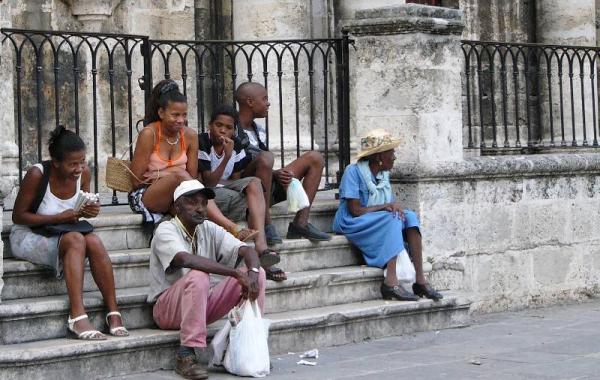
The Cuban government recently released its draft guidelines for economic and social policy, for approval at the next congress of the Communist Party of Cuba, scheduled to be held in April 2011. Apparently during the next 5 years the issue of fundamental rights of Cubans, mainly workers’ rights, will be off the state’s agenda.
In Cuba the economic system is based on the “socialist state ownership of all the people” over the basic means of production. The new update of the economic model takes a series of measures to eliminate subsidies, gratuities, and paternalistic treatment, but does not mention citizens’ guarantees against the power of an administration that is completely unresponsive to its constituents.
The socialist state continues to appear as the only entity capable of satisfying the general interests of Cuban society, both at the individual and collective levels. The new policies strengthen its enterprises at the detriment of the rights of workers.
This strategy was already put in practice with recent legislative changes undertaken by the State Council, which have as their main objective the elimination of the legal responsibility of the “socialist state” and its enterprises for the protection and relocation of redundant workers.
In the face of this excessive power of the socialist administration, labor guarantees are minimal. State enterprises have the authority to carry out restructuring plans, to make mass layoffs, and to question the ability of workers, citing lack of fitness.
The worker’s only means of defense is with a “Labor Base Justice Body”, one of whose members represents the administration of the entity that did the firing, or with the courts, which under the constitution receive direct instructions from the Council of State, the same body that enacted the measures restricting the exercise of workers’ rights.
There is no right to strike, and demonstrations are allowed only if they are organized by the state itself or its mass organizations. Anyway, the Constitution makes it clear that no civil liberties can be exercised against the existence and objectives of the socialist state.
Obviously the rights of citizens are not on the priority list of the Cuban state. The economic readjustment seeks only the survival of a system that has conclusively proven to be ineffective, and the staying power of the longstanding historical socialist leadership, at the expense of the welfare of Cubans.
Translated by: Tomás A.
December 19, 2010
The Sinister Ones / Iván García
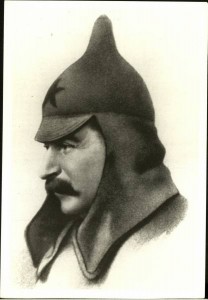 There is too much perversion in the world. It is a feature of serial murderers, pedophiles and sexual deviants. Or of the ETA (Basque) terrorists and those irrational people who crashed two planes into the Twin Towers in New York on September 11.
There is too much perversion in the world. It is a feature of serial murderers, pedophiles and sexual deviants. Or of the ETA (Basque) terrorists and those irrational people who crashed two planes into the Twin Towers in New York on September 11.
But there are — and there have been — sinister governments. In the name of whatever cause. The most handy, from October 1917 until the present, has been imperialism, the bourgeoisie and the exploitation of man by man.
I’ve always wondered if Stalin, Hitler, Mussolini, Franco, Mao, Pol Pot, Ceausescu and Idi Amin, among others, already had macabre governing designs in mind when they began their careers as politicians.
I would like to think not. That these were once dreamer types who wanted the best for their people. And maybe a mental condition, not yet studied in depth by the scientists, converted all of them into miserable satraps.
All these dictators have a common stamp. They speak in the name of the dispossessed and in the name of nationalism. They believe they have a redemptive mission to fulfill. They consider themselves to be enlightened. The Little Fathers of their countries.
Without exception, they are manipulators with an ego that is beyond reason. They do not tolerate disagreements. And it is just at that moment when sinister politicians pull the trigger, the tortures, concentration camps, summary trials and unsanitary prisons.
In the end, history chooses them as the best example of what not to do in the exercise of power. In the 21st century there are few who remain alive.
One of them is now a sick old man who writes his memoirs in a hurry. And in his raptures of lucidity, he still believes he has something to say to his people. And he scribbles pathetic reflections about any event in the world, except that which he should write about: The complicated and uncertain future of his country.
I hope that all these caudillos, before they died, recognized that they were arrogant despots; that they made monumental errors, destroyed nations and were detested by millions.
Photo: Stalin, from the photographic archives of Life Magazine
Translated by ricote
December 17, 2010
Ability to Sacrifice, Inability to Judge / Reinaldo Escobar
A recent revelation from Wikileaks has exposed conversations among diplomats accredited to Cuba in which they made gloomy predictions about the future of the Island, particularly because of the expected economic setbacks. These speculations are not new; I dare say they are cyclical in nature and never correct in their conclusions, although they start from known budgets.
I will not pretend to describe here “how the water gets into the coconut” nor to give the definitive explanation of why the current social model prevailing in Cuba endures against all odds. I am going to limit myself to mentioning one of the sources of error in the analyses that set a fixed date for “the twilight of the Castro regime.”
I offer a parable: A tobacco farmer in Pinar de Rio showed up on my balcony one day and, looking at the tomato seedling a neighbor had in his patio, said to me, “Tell the gentleman that in these conditions he won’t get results. The tomatoes there won’t grow big enough for even a tube of puree.” Based on his deep knowledge and extensive experience, the tobacco farmer explained many things to me about the consequences of irrigating vegetables with chlorinated city water, the urgent need to protect the crop from insects, and many more details I’ll omit so as not to overwhelm my readers. More than two years have passed and my neighbor Felipe continues to cultivate and sell tomatoes to the people of the neighborhood, indifferent to the advice of the man who grows the best tobacco in the world for the richest people on the planet.
The lesson that can be derived from this example is that those who set a very high standard in calculating the demands of their customers are not capable of understanding what happens when the recipient of what is produced is the kind of person who has never eaten a decent tomato, nor smoked export-quality tobacco.
When we analyze Cuba we do so within an environment where the government calculations used to plan for production and services begin with an extra-economic factor which, in metaphoric terms, can be expressed as “the people’s infinite capacity for sacrifice.” Because of this, until today, socialist companies do not declare bankruptcy. Because of this Cuba was until very recently a world power in sports, even though boxers who left the training center with yogurt for their children in their bags were punished. Because of this we are one of the countries that sends the most doctors to the third world, although the waiting list for a gallbladder operation has become an agony and service has been suspended in a dental clinic because there is no paper to wrap the instruments in the sterilizer.
Those diplomats who calculate the imminent disaster come mostly from nations where the workers go on strike against extending the retirement age, and students burn buses because public transport fares go up a few cents. They can never understand how it is possible, after the layoffs of half a million workers, the plaza is full on May Day with people singing an anthem that says, in one of its verses, “What does the worker care about the sacrifice? United we will overcome any aggressor.”
This article originally appeared in Diario de Cuba, December 13, 2010.
Tending Bridges / Iván García
A contagious song by a Cuban salsero asks in its chorus for a long bridge to be built between La Havana and Miami. Perhaps in the not so distant future the engineers and architects will consider such a possibility.
The so-called City of the Sun appears to be an appendix of Latin America. In jest, it is said that the next Congress of the Communist Party, expected for April 2011, will designate Miami ‘a new Cuban province’.
In Florida live more than 800 thousand Cubans. That number of inhabitants is more than that of ten of the fourteen provinces on the island. While the politicians in Cuba and the United States carry on with their cold war language, the common people, musicians and intellectuals, have broken dikes that only a few decades ago were a minefield set by the Castro government.
In Havana it makes news each time important musicians appear in comedy programs or debates from Miami. Thanks to the illegal satellite antenna, for which families pay the equivalent of 12 dollars a month, it is known that orchestras like Adalberto y su Son, La Charanga Habanera, Bamboleo or the songwriters Silvio Rodriguez and Amaury Perez, among other musicians, have participated in television programs from the other side of the puddle.
Segments conducted or directed by distinguished humorists and presenters like Alexis Valdes or Carlos Otero, who decided to emigrate a while back. A few years back, if you spoke in public or private with Cuban ‘deserters’ they would label you as a ‘traitor to the homeland’.
The politics of tending bridges is not applauded by all Cubans on either shore. In Miami, compatriots that have suffered the typhoons of Fidel Castro’s radical politics, have burned or taken axes to the CDs of musicians from the island who have performed in Florida.
I can understand their pain. I know exile is hard. I have my family and friends far away. I know from firsthand accounts, of the rigors of the jails for those that have dissented publicly. I think of the hundreds who were shot by the regime during the first years of the Revolution.
All that happened and can not be thrown in the garbage. But there should be a before and an after. A turning point in the way we reason. Try dialogs, not monologues. Hate affects lucidity. Also in Cuba we have ideological Talibans. And there is good reason behind those who shout for the flow of a cultural interchange in both directions.
The Cuban government kicks and screams when an intellectual, academic or musician is denied their visa by the American authorities. Of course this is wrong. Just like I think it’s a cruel joke to list Cuba among the other countries that practice terrorism. But Castro is also intolerant.
I don’t see the hour when Willy Chirino or Gloria Estefan will be allowed to sing in Havana. The Cuban authorities should apologize with their heads lowered and build a mausoleum for that giant of the guaracha that was Celia Cruz, censored by the national media.
Before we speak of democracy and of what kind of society we Cubans want in the future, the Castro brothers should abolish the perverse permission required for people born in Cuba to enter and leave the country.
The politicians dictate laws and decrees that later burn their hands. They become a boomerang. You can’t divide what’s united. And all Cubans, regardless of where they live, were born of the same homeland. And the dinosaurs of the cold war can like it or not.
Photo: Cubans dance with Adalberto Alvarez y su Son at ‘La Casa de Tula’, in Miami.
Translated by: Yulys Rodriguez
December 11, 2010
Days of Love and Pardon / Rebeca Monzo
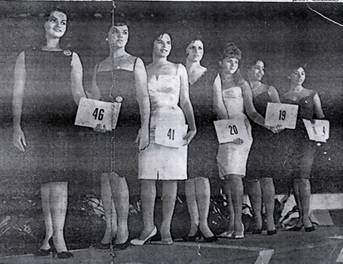 We experience a lot of emotions these days. I don’t know if by tradition, or by contamination, because although the authorities on my planet don’t want this, it underlies the atmosphere and enters into our hearts.
We experience a lot of emotions these days. I don’t know if by tradition, or by contamination, because although the authorities on my planet don’t want this, it underlies the atmosphere and enters into our hearts.
Yesterday I was running errands in Old Havana, which I consider to be an oasis in our urban desert. What called my attention was to see that, unlike in other years, neither the streets nor the shops were decorated. Christmas trees could be seen while walking past the fancy restaurants and hotels, almost hidden from the eyes of passersby. As if the city was embarrassed by dressing up. It bothered me, because indeed this was the only part of the capital where we could breathe the Christmas air. Someone told me that was due to a decree that established a ban on these ornaments. I am not sure, but there is something to this, because it would be precisely the historic center that would show off the beautiful decorations and lights of this season.
I think it is a mistake repeated ad nauseam, to prohibit these expressions of joy, since the population increasingly manages to decorate houses and gardens, despite the lack of resources. This has become a challenge. I, from my blog, join all those souls who keep alive the spirit of Christmas and raise the toast that one day soon, all Cubans can join in an embrace of love and forgiveness.
Merry Christmas!
Translated by ricote
December 18, 2010
Omni Zona Franca to El Rincón… Photos by… / Orlando Luis Pardo Lazo
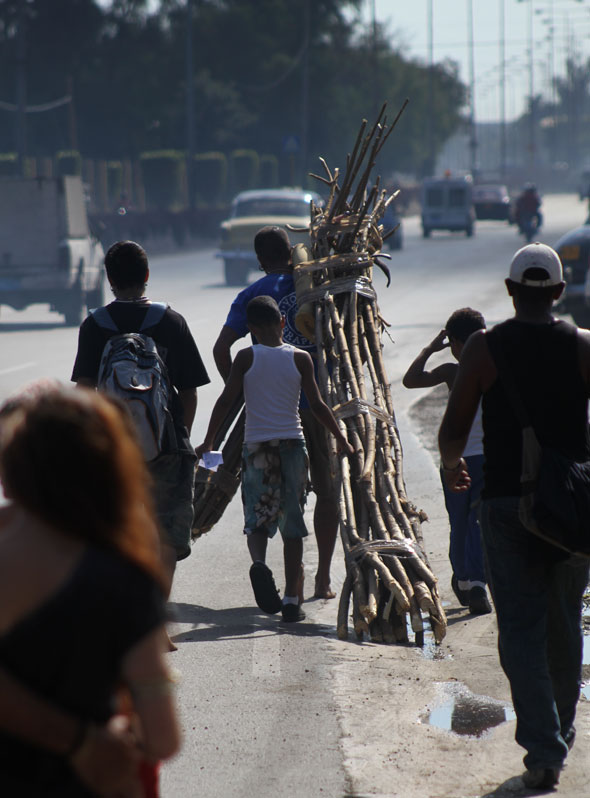

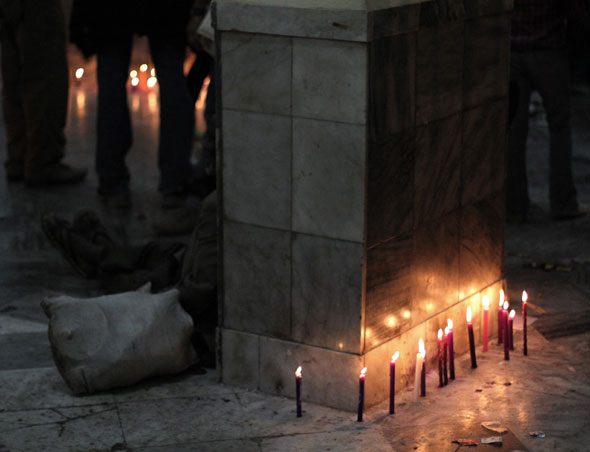
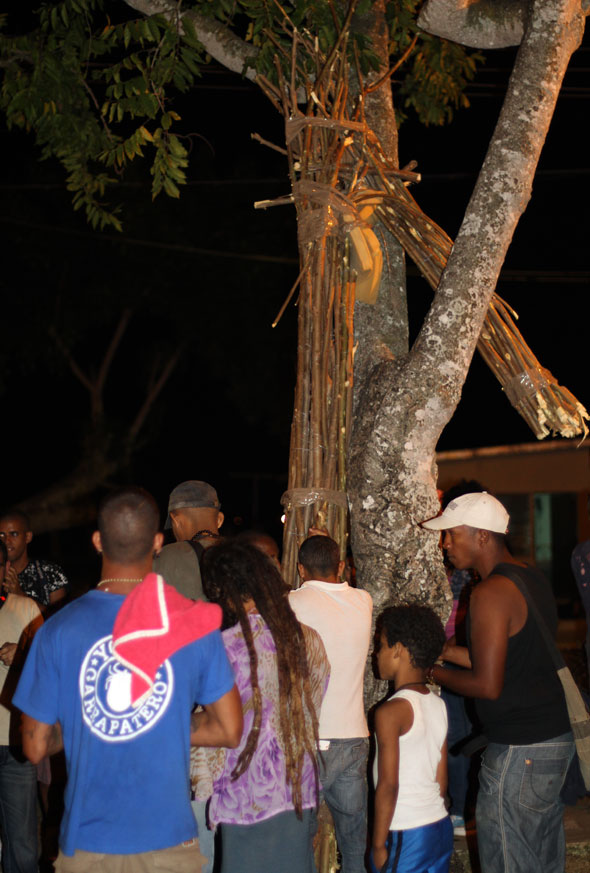
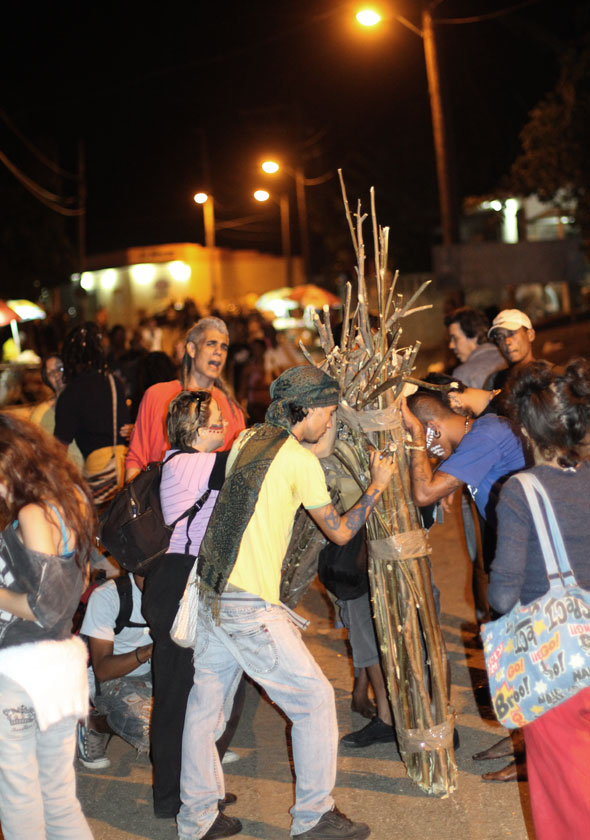

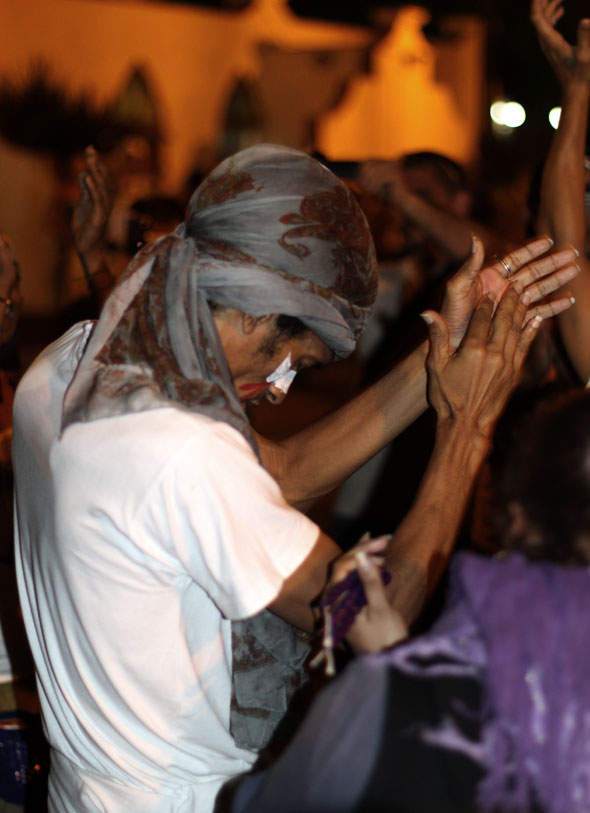
Quintín Banderas and the Little War of August / Dimas Castellanos
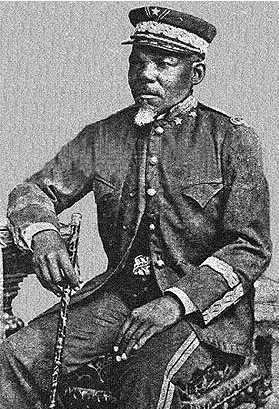 A victim of power, violence, social injustices and racism during the Little War of August of 1906 — generated by the conflict among the political elite of the age with the goal of the presidential reelection of Tomás Estrada Palma — Army General & Liberator Quintín Banderas Betancourt, a black freeman who gave 30 years of his life to the fight for the abolition of slavery and the independence of Cuba, was killed as one of the heroes of Cuban independence.
A victim of power, violence, social injustices and racism during the Little War of August of 1906 — generated by the conflict among the political elite of the age with the goal of the presidential reelection of Tomás Estrada Palma — Army General & Liberator Quintín Banderas Betancourt, a black freeman who gave 30 years of his life to the fight for the abolition of slavery and the independence of Cuba, was killed as one of the heroes of Cuban independence.
Black, of medium stature, physical force, with an easy smile and natural intelligence, Quintin formed his personality in the Santiago neighborhood of Los Hoyos. His work as a bricklayer from an early age prevented him from learning his basic letters. He traveled to Spain as a stoker and cabin boy on a boat where he learned the trade of marine merchant. He became a soldier in the Ten Years War and ended as a Division General. He participated in the invasion of Las Villas, in the Protest of Baraguá, in the organization of the Little War, in the War of Independence of 1895, and in the Western invasion of 1897. He was judged and separated from the service by a Military Council, but once the war was finished, the Hill Assembly ratified his grades of Brigade and Division General with retroactive status.
His insubordinations, related to his rebellious character, were produced in an environment vexed by racism and intrigue. Quintín, with quite brown skin, had as his bosses and subordinates white-skinned Cubans. Figures of the caliber of Calixto Garcia, for example, conditioned their participation in the war on the leadership being in white hands. The unquestionable is that General Banderas was one of the Cubans that put his country’s interests before his own personal interests. At one point he wrote, “Never did I think of the benefits that would come to me from war, only freedom directed my steps and to its achievement I have dedicated my youth, my comfort, my entire life.” The sad outcome of his life is connected with the racism and violence in the rough process of forming our nation.
Nations, the result of complex historical processes, reach their peak at the time when awareness of identity and belonging to different communities leads to a unique and stable community. In Cuba, this process is still not complete, was looming in the early twentieth century. Spaniards and Africans, transformed into Creoles and Cubans, accelerated their identity in the midst of war. However, the great differences in social, economic and cultural rights and opportunities, consolidated over several centuries of slavery, prevented the formation of a common purpose — still not achieved — to rise above the differentiating elements.
After the war, equality among Cubans, recognized formally in the 1901 Constitution, was not accompanied by practical measures to reduce the large gap between blacks and whites. For example in Article 13 read: “… every person may freely either learn or teach science, art or a profession, and establish and support education and training facilities …” However, in 1905, they were still trying to create a center for upper primary education and secondary education for young blacks who lacked financial resources to receive such instruction. As a result, blacks were still what they were before the conflict, just black.
The double discrimination suffered — by Cubans, as compared to Spaniards and by blacks as compared to whites — coupled with economic and cultural disadvantages, was reflected in the employments. Jobs in commercial establishments in U.S. companies (telegraph, telephone, electricity and sugar mills) and also in public offices of the state were virtually reserved for whites, while blacks had to work in construction, agriculture and some other trades . The best evidence of this was the creation of republican armed forces, where blacks, who had constituted 60% of the fighters of the Liberation Army in 1907 were less than 15% of soldiers and police. Blacks moved from war heroes to unemployed in the Republic.
In such an unfavorable environment, the General of the three wars sent letters, requested interviews and tried to fill vacancies without results. The New Creole of August 25, 1905, published, as an example of racial discrimination, the refusal of President Estrada Palma to receive him. Sometimes forced to work as a carter and others in a section of waste collection, he managed to survive thanks to loans, collections and public functions organized his friends. In addition, with the justification that he had been sanctioned, he was denied veteran’s pension, a false argument, because as we said before, the Cerro Assembly recognized his ranking as a General retroactively. Faced with such a critical situation he chose to participate in politics. In 1899 he accompanied Juan Gualberto Gomez in an attempt to organize the veterans of the Eastern Province. All roads closed and in 1906 he joined the so-called Liberal Revolution of August with a small group of men, against the reelection of Don Tomás Estrada Palma.
In that contest he was the first to initiate combat actions: He raided the Havana-Guanajay train, attacked and seized weapons and supplies in several villages of La Habana. Once the armed attempt failed, from his camp he sent a letter to the authorities for safe passage out of the country. The answer was the order to assassinate him. Four bullets and seven machetes ended his life. According to the forensics, he died of accidental injuries.
The only thing we must understand, said Juan Gualberto Gómez, is that without freedom there can not be equal brotherhood. And the truth is that at the time of the assassination of Quintin, there was no economic life, culture, nor consciousness of a common destiny, defining elements without which we can not consider that a human group has become a nation. And Fernando Ortiz said: “Without the black Cuban there would not be Cuba.” He could not therefore be ignored. But sadly for all Cubans, this ignored problem has not yet been resolved definitively.
His promotion to General was an example of black participation in the Liberation Army, and his murder, a symbol of the injustices in the Republic. After he died he was placed in the pantheon of martyrs and his figure was manipulated by political parties of the time to rally the black vote, which as we know, were more than a few.
Translated by: D. Brazzell
August 8, 2010

